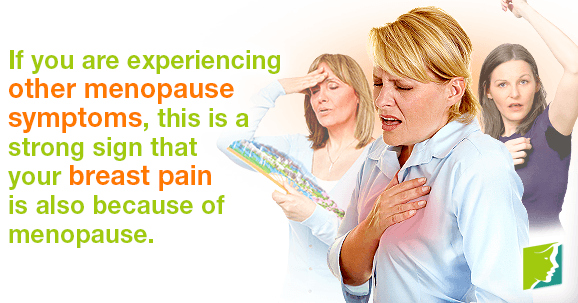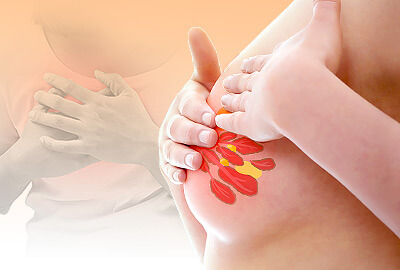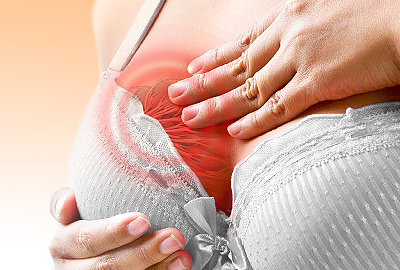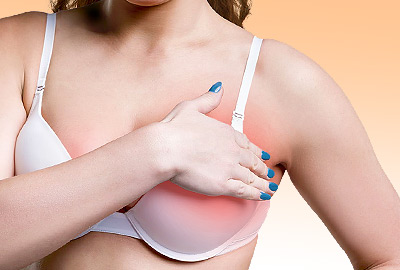Breast pain is one of the most common symptoms of menopause, and there are a number of reasons for this - hormonal imbalances, medications, and lifestyle. Although breast pain can affect women of any age, it is particularly prevalent in those who are going through menopause. The problem is, many women who experience breast pain are unsure if their pain is related to menopause or whether it is due to something else. Keep reading to find out how to know if breast pain is a sign of menopause.
Age
The time when most menopause symptoms occur is during perimenopause, or the years between experiencing the first symptom of menopause until the very last period. This can last on average from two to eight years, and sometimes even longer. The normal timeframe for perimenopause to occur is between the ages of 45 and 55. Therefore, if you are in or nearing this age group, there is a high chance that your breast pain is a sign of menopause.
Other Menopause Symptoms
If you are experiencing other menopause symptoms, then this is a strong sign that the pain in your breasts is also because of menopause. There are a range of different symptoms a woman can experience, but some of the most common ones are hot flashes, night sweats, vaginal dryness, and irregular periods. If you suffer from any of these, then it is likely that your breast pain is also a symptom, and this can range from anything between a mild tenderness to severe pain that interferes with the ability to carry out everyday activities.
There Have Been No Lifestyle Changes
Certain dietary and exercise habits can affect how the breasts feel; for example, a diet high in fat and low in fiber has been linked to increased instances of breast pain, and too little exercise - as well as exercise without a supportive bra - can also be a factor. If there has been a recent lifestyle change or a switch in bra, then this could be the cause of the breast pain, but if not, the pain could possibly be due to menopause. This is also true for women in their 30s and 20s - although rare, early onset menopause can and does occur. However, if you are in this age bracket, the likelihood of the pain being caused by menopause is slim, and it is more likely connected to premenstrual syndrome (PMS).
Breast pain can often be a source of distress and worry, with some women not knowing why it has started to occur. There is no way of knowing for sure what has caused your breast pain without talking to your doctor and obtaining a medical checkup, but looking at some of the signs, such as those mentioned above, might help you make an educated guess as to whether menopause is behind it.
Sources
- Breast Cancer Care. (2013). Breast pain. Retrieved October 6, 2014, from http://www.breastcancercare.org.uk/breast-cancer-information/benign-breast-conditions/breast-pain#noncyclical
- National Breast Cancer Foundation. (2012). Breast Pain. Retrieved October 6, 2014, from http://www.nationalbreastcancer.org/breast-pain
- National Institutes of Health. (2012). Breast pain. Retrieved October 6, 2014, from http://www.nlm.nih.gov/medlineplus/ency/article/003152.htm




